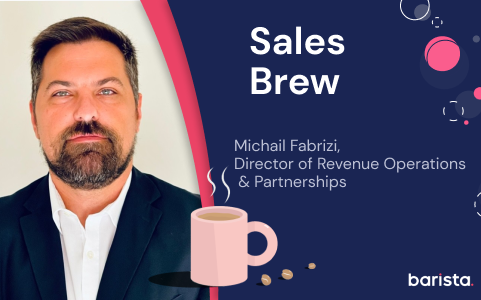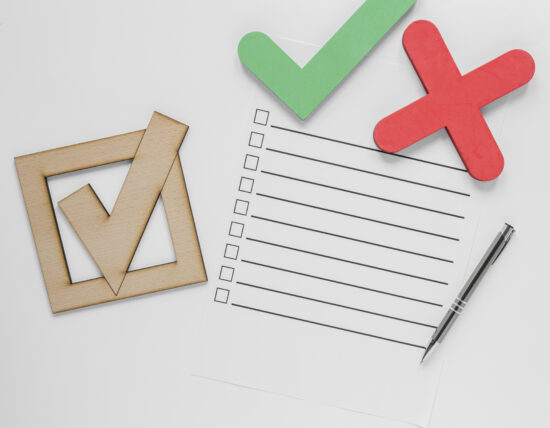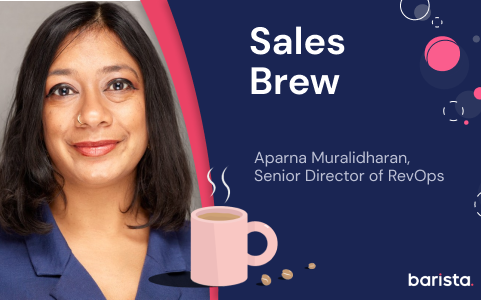Sales Brew - Nieka Mamczak, Head of Sales Enablement at StackOverflow
Roy Weinstock
For the fourth episode of Sales Brew by barista AI, we had the opportunity of hosting Nieka Mamczak, Head of Sales Enablement at StackOverflow. Nieka is an experienced enablement leader that has proven several times her ability to impact revenue through building an enablement machine to optimize processes and coaching. This episode will make you invest more in your people through enablement. Guaranteed.
To watch the full interview and get updated on every sales brew episode, subscribe to our YouTube channel. A short version and transcription are below. Get a cup of coffee and enjoy the show!
Can you tell us a bit about your sales enablement journey?
So I started my career in enablement at IBM in 2016 and it was becauseI had been through an acquisition. IBM had acquired a small company called Ustream, which I’ve worked at.
I was a director of sales for Ustream. And so my role was to make sure that the sales team was selling our product. Once we were acquired by IBM, I was asked by them to be the subject matter expert for our product. I was literally traveling all around the world to train IBM, sellers, and partners on our product which was a streaming SaaS video product.
It was new to the IBM portfolio, so it was really important for me to make sure that I was strategic in the way I think about training. After three months of doing that, I was asked by our VP of sales in our business unit to take on a full-time enablement role. After spending three months doing enablement, I realized, that was my calling in my passion. What I loved about it first, was tha ability to dynamically change the opinion of a seller to make sure that they would remember the product.
So, I had to sell to them first. I was using my selling power, but I was also noticing that when you do enablement, you were able to reach more people than just the the team that you’re managing. It was really strategic and exciting to be able to represent a bigger number that the product offered. That’s when it made me realize enablement was my next world to live in.
I spent three years at IBM as a worldwide enablement lead for our video product, and after that
I elected to leave to go to a smaller organization because I felt that I was better suited for smaller companies. So I took on the role of the first enablement hire at Udemy. My goal was make enablement happen. They had never have enablement unit before I joined the company.
Of course, the first thing I tackled quickly, was onboarding. When a company is rapidly growing, onboarding becomes crucial to enable that pace of growth. Then helps you to bring in new people and support them to have them After tackling onboarding, I looked at the company’s OKRs to see what is the company looking to do goal wise. So, I started to align and create programs that were mapped to the OKRs, so that each quarter our learning and development strategy supported the companies goals and direction. Every Thursday everyone on sales and customer success came to a revenue enablement session. There was some pre-work first, there was the actual live session and there was post-work to show application.We established that way a culture of learning and a consistent scalable program that boost our content.
After 2 years at Udemy, I’ve joined the enablement team at Drift. There was already a sales enablement function, but there was no enablement on the customer success team. So what I was doing was bringing in all my great sales experience, all migrated enablement experience, and really building that culture of learning for the post sale side.
And so naturally, again, I brought with me, the things that I had already learned. Step one, tackle the buckets. Of course, it’s got to be role-based, customized and aligned with the needs of the metrics and ramp for customer success.
How do you make sure your enablement content and materials make an impact on reps?
I think it’s really important to establish a learn-teach-back practice cadence. For each learning that you provide, you want to remember that. People cannot possibly just learn in the moment. You have to validate and check for understanding. So in your onboarding bucket, when you’re teaching new content, they learn, and it could be with a subject matter expert. Let me digest it on my own and let me practice it. Practice is super important because if you just go from learn to apply you are missing that point in time where you can establish muscle memory.
And then the teach back. The teach back is validation and can come in a variety of ways. If you’re my manager, and I’m learning something new after practicing, I’m going to tell you what I just learned, and possibly teach other team members. If you can teach something, it means you understood it deeply.The fact that you got someone else to understand a concept that you didn’t know before is a great validation of the success of the training process.cIf the person has missed something in the teach back process, it means he’s not ready to perform yet. I, as a manager, need to teach him more and he needs to practice more. Practice in the teach back and they’re going to want to perform in the
How do you see enablement work in replicating A player’s game?
It starts with identifying what good looks like, which is identifying A players and the best practices. At Udemy, every year the product marketing team recreates or refreshes the narrative deck, it’s normally the slide deck that the sellers use for the first meeting doing discovery with a customer. So what we established is a narrative certification program.
It serves two purposes: one is it make sure that everyone knows and understands the content (we do the learn practice, teach back to validate). What then happens? During this certification program, you will find the people that are really good at doing certain things.
So what I did to build that certification program is to build scorecards and so when the team had to do their learn, we came back to it. I assigned each rep with a peer and they were presented with a scorecard of what good looks like. So if I’m practicing with you, I’m going to do my pitch to and you’ll have the scorecard in front of you. You could give me a score and you’re could say, something like: Hey Nieka, you did really well at the beginning, but you didn’t really ask many discovery questions. Go practice that again. And then what I’m going to do is the same for you and we’ll take each other speed back, fine it, tune it and change our process accordingly.
How do you measure the impact of sales enablement initiatives?
So that’s where it gets tricky with enablement, right? Because you can’t say that you have directly impacted revenue. What I feel comfortable saying is that I’ve influenced behavior change for revenue. You can influenced revenue change as an enablement specialist through all these programs. For example, we saw that the sales cycle was shortened because the value of the offering was more clear and the customer was more excited because not only they were they buying a product, but they were buying a thought leadership team.
Another thing that can be measured is the size of contracts and their length. That is especially good metrics for expansions as a customer success.
How do you like your coffee?
Okay, I have an espresso machine and I have a very specific coffee that I like to make for myself. It’s a double espresso shot and I add a little bit of coconut cream, coffee creamer and a little bit of soy milk. That is my preferred coffee.
To watch more from Sales Brew about Sales Enablement and more:
- Episode 1: Sales Brew with Tyler Meckes, Account manager at Dooly
- Episode 2: Morgan J Ingram, Director of Sales Execution and Evolution at JB Sales
- Episode 3: James Buckley, Chief Evangelist and Master of Ceremonies at JB Sales
- Episode 4: Nieka Mamczak, Head of Sales Enablement at StackOverflow
- Episode 5: Sam Sweeny, Sales Operations Manager
- Episode 6: Benjamin Roach, Global Sales Operations Manager at Ardoq
- Episode 7: Elgun Aliyev, Salesforce Admin at CentralReach
- Episode 8: Amanda Harwood, Sales Operations Manager
- Episode 9: Jake Rasmussen, Salesforce Consultant


